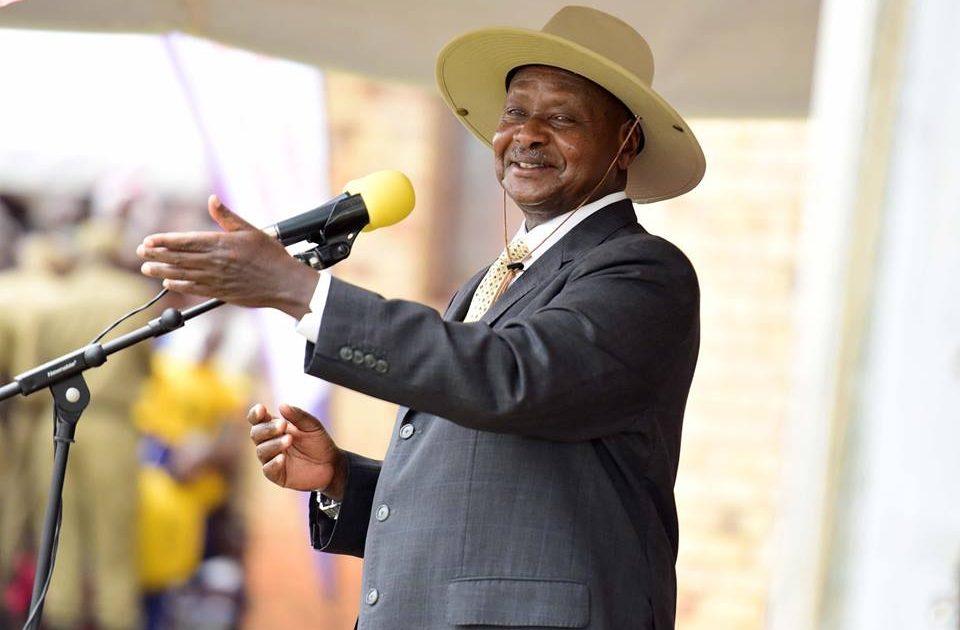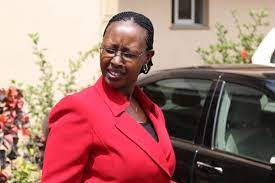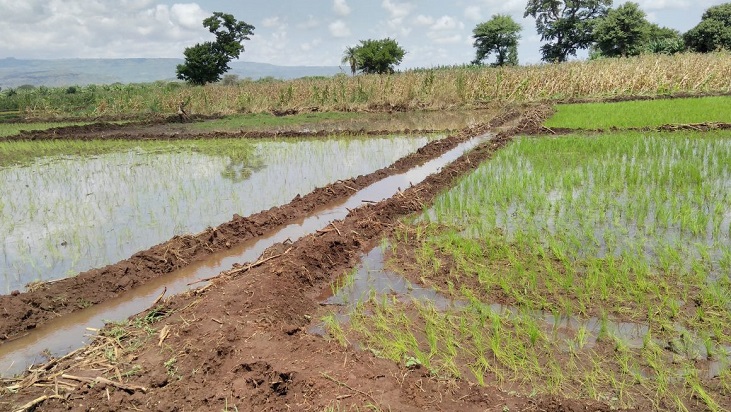Uganda’s President Yoweri Kaguta Museveni has said that multi-lateral agencies such as the World Bank and the International Monetary Fund don’t work to advance developing countries, revealing that they are agents of colonialists.
Museveni made the remarks on Friday during the 25th Joseph Mubiru Memorial Lecture held at Serena Hotel, Kampala. The annual event is organized by Bank of Uganda.
In a speech delivered by his representative Professor Ephraim Kamuntu, Museveni said the set-up of the multilateral agencies such as the World Bank, International Monetary Fund, and World Trade Organisation post World War Two was marketed as creating a level playing field for all countries in the world.
“Nonetheless, this was far from the truth as these agencies simply sought to entrench the hegemony of the countries of the Northern Hemisphere in the world economic order,” Museveni said, adding: “Despite the shrinking proportion of the Northern Hemisphere’s countries in global Gross National Product (GNP), decision making in these multilateral agencies remains in the hands of the advanced economies. The symptoms of this unfettered arrogance of our colleagues has manifested in a number of ways such as the collapse of the World Trade Organisation talks at Cancun, as well as the recent developments in the Paris Climate Accord amongst others.”
He noted that the British colonialists left a largely agrarian economy that relied on the export of commodities, namely coffee, cotton, and tea to the advanced economies of the world.
“Therefore, from the start the economies of colonial jurisdictions had been set up as sources of raw materials for industry in the Northern hemisphere,” he said, adding after independence, the colonial masters sought to benefit from these raw materials at very low prices through protectionism measures like agricultural subsidies to their farmers; introduction of non-tariff barriers; creation of industry cartels amongst others.
Dr. Ha-Joon Chang was the Guest Speaker for this year’s lecture.
In the words of Dr. Chang, the advanced economies of the world have used these multilateral agencies to kick away the ladder which they used to develop.
“On account of these global realities, Africa must look inward for the solutions to its sustainable development agendas. Looking inward does not imply blind nationalism or tribalism,” Museveni said, adding that it implies that Africa must seek to leverage her natural capital whether human or physical extractive wealth to push her development agenda. In order to achieve this, there is a need for Africa to form Regional Economic Communities (RECs).
“Apart from the benefits of a big market as opposed to small fragmented markets, the benefits of geopolitical relevance in terms of security, as well as the combined impact of our natural endowments such as mineral and human resources; RECs must serve as a means of sharing technological advancements given that African nations are at different levels of technological know-how,” Museveni said.
The sharing technological advancements would go a long way in minimizing losses of natural capital amongst African countries occasioned by lack of technology, he said.
At the continental level, Museveni said the state must seek to pursue the integration of African countries as well as strategic but equitable collaborations with other RECs.
“In all these endeavours, the household or individual who are the custodians of the factors of production, that is, land, labour, capital, and entrepreneurship must be facilitated to thrive. In other words, the state must provide the strategic direction of how we cooperate with our neighbours but the fruits of these collaborations are to be sweated for and reaped by the private sector,” he said.
He added: “At the national level, my Government inherited a country characterized by inflation which averaged 250 percent per annum, the economy was largely demonetized, foreign exchange was scarce, and whatever was left of financial institutions was largely insolvent and poorly governed.”
He added that over the last 30 years, the NRM Government has repaired the socio-economic fabric of Uganda’s economy through the re-establishment or outright creation of institutions necessary for high quality economic growth such as secure property rights, regulatory institutions, institutions for macroeconomic stabilization, institutions for social insurance, and institutions for conflict management amongst others.
“These institutions delivered high quality real economic growth that averaged 7 percent per annum over the last three decades,” he said, adding: “However, our aspirations as a country are to become a middle income state by 2020, a feat that will require real GDP growth of between 8 percent and 10 percent per annum.”
Museveni said the government’s priority right now is to ensure that there is sufficient energy to run industry and infrastructure to get the manufactured goods to the markets and lower the cost of doing business thereby increasing the competitiveness of our entrepreneurs.
“In addition, we have put some resources into promoting tourism and will continue to invest in growing this sector,” he said.





